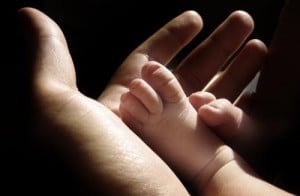 On this day in history, by 1.30 in the morning on the 1st January 1511, Catherine of Aragon had given birth to a son, an heir to the throne of England. He was baptised ‘Henry’ after his father and grandfather in a ceremony four days later at the Chapel of the Observant Friars at Richmond. The French King, Louis XII, was chosen to be one of his godfathers and sent a golden cup and salt as christening gifts; William Warham, Archbishop of Canterbury was the other, and Margaret of Austria was chosen as his godmother, although she did not attend.
On this day in history, by 1.30 in the morning on the 1st January 1511, Catherine of Aragon had given birth to a son, an heir to the throne of England. He was baptised ‘Henry’ after his father and grandfather in a ceremony four days later at the Chapel of the Observant Friars at Richmond. The French King, Louis XII, was chosen to be one of his godfathers and sent a golden cup and salt as christening gifts; William Warham, Archbishop of Canterbury was the other, and Margaret of Austria was chosen as his godmother, although she did not attend.
His birth was celebrated with an extravagant tournament held at Westminster in his mother’s honour, a tournament which Thomas Boleyn participated in. Giles Tremlett points out that “contemporaries considered it the most extravagant and theatrical tournament ever seen in England” and that it was “the third most expensive spectacle of Henry’s long reign, after his father’s funeral and the deluge of ostentation that would later be known as the Field of Cloth of Gold.” Tremlett describes how the jousters dressed up as a hermit (Charles Brandon) and pilgrims and that the tournament started off with a pageant “made like a forest with rocks, hills and dales, with diverse sundry trees, flowers, hawthorns, fern and grass, with six foresters standing within the same forest, garnished in coats and hoods of green velvet. A gold castle rose from the centre, with a gentleman at the gate making a garland of roses.”
This pageant was on wheels and was drawn by “a silver antelope and a golden lion”, who hauled it in front of the new mother and queen, Catherine of Aragon. The foresters then blew their horns and the pageant opened up to reveal four knights, one of whom was the King. As he led his armed knights, Catherine would have seen the words “Cure loial” (Loyal Heart), embroidered on his skirt and his horse’s trapper, words which were meant as a profession of love for her. It was then time for the King and his knights – Bonespoir (Good Hope), Bon voloire (Good Will), Joyous panser (Happy Thoughts) and Valiaunt desire – to joust. Tremlett writes of how records show that the tournament was won by Valiant Desire but that Henry “ran twenty-five courses, far more thany anyone else”, so he was obviously in high spirits! He then treated his wife to “a series of acrobatic turns” with his horse – how wonderful!
The joust was followed by a banquet and an evening of entertainment in the White Hall of Westminster Palace, which became rather out of hand at one point when the crowd started tearing the pageant apart and even started stripping the King. The mob was calmed, the King laughed it off and the merrymaking continued, I doubt that anything could have spoiled the day for Henry.
Unfortunately, the couple’s happiness was short-lived. Henry, Duke of Cornwall, died on the 22nd February having lived just 52 days. His cause of death is unknown. It was a bitter blow for Henry VIII and Catherine of Aragon and how different things would have been if little Prince Hal had lived. Catherine tried her hardest to provide her husband with a son and heir, suffering at least four miscarriages and stillbirths between 1510 and 1518, but her best – their daughter, Mary, born in 1516 – just wasn’t good enough for the King.
You can read all about Catherine of Aragon’s pregnancies in my article The Pregnancies of Anne Boleyn and Catherine of Aragon
Happy New Year!